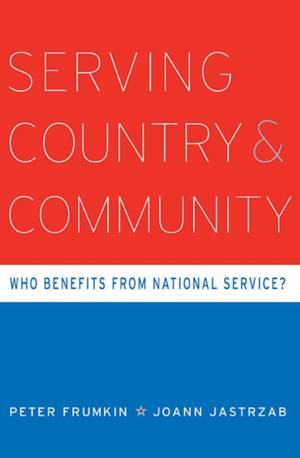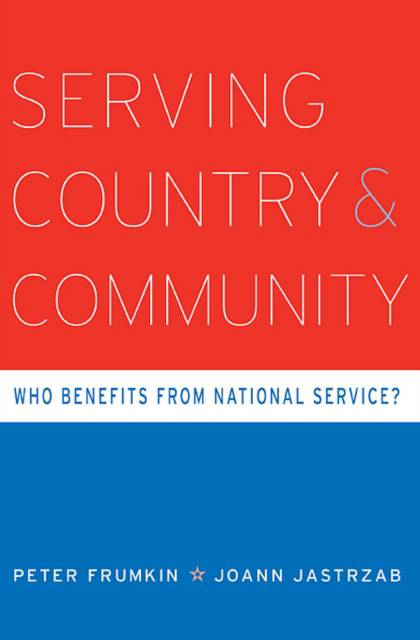
- Retrait gratuit dans votre magasin Club
- 7.000.000 titres dans notre catalogue
- Payer en toute sécurité
- Toujours un magasin près de chez vous
- Retrait gratuit dans votre magasin Club
- 7.000.0000 titres dans notre catalogue
- Payer en toute sécurité
- Toujours un magasin près de chez vous
Serving Country and Community
Who Benefits from National Service?
Peter Frumkin, Joann Jastrzab
Livre relié | Anglais
103,45 €
+ 206 points
Description
The United States has a long history of citizens rendering service to their communities. Examples of government-sponsored voluntary service organizations include the Civilian Conservation Corps, the Peace Corps, and Volunteers in Service to America (VISTA). During the Clinton administration, the national service movement was advanced by the establishment of AmeriCorps, a large-scale national service program designed to place young people in community service positions across the country. More recently, the Obama administration has set in motion a major program expansion of AmeriCorps over the coming decade.
Many decades, billions of dollars, and hundreds of thousands of volunteers after the creation of the first national service programs, it remains unclear who benefits from service, under what conditions these programs work best, and how exactly these service efforts contribute to the strengthening of communities. Serving Country and Community answers each of these questions through an in-depth study of how service shapes the lives of young people and a careful analysis of the strengths and weaknesses of these programs. Based on years of field work and data collection, Serving Country and Community provides an in-depth examination of the aims and effects of national service and, in the process, opens up a conversation about what works and what needs reform in national service today.Spécifications
Parties prenantes
- Auteur(s) :
- Editeur:
Contenu
- Nombre de pages :
- 320
- Langue:
- Anglais
Caractéristiques
- EAN:
- 9780674046788
- Date de parution :
- 01-06-10
- Format:
- Livre relié
- Format numérique:
- Genaaid
- Dimensions :
- 160 mm x 244 mm
- Poids :
- 630 g

Les avis
Nous publions uniquement les avis qui respectent les conditions requises. Consultez nos conditions pour les avis.






